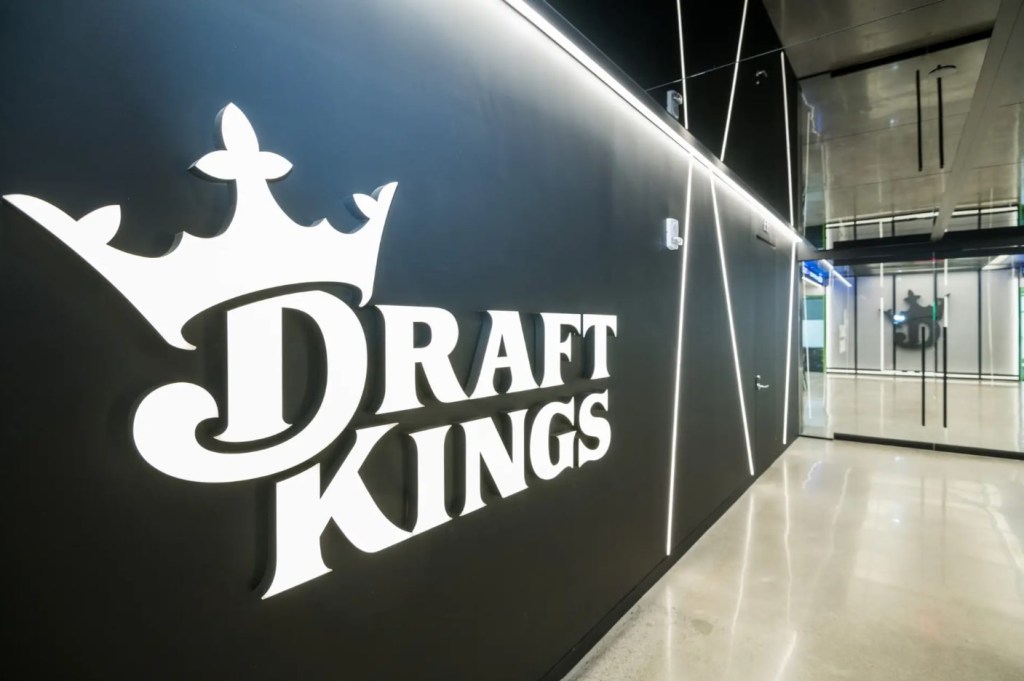Crypto.com, the cryptocurrency exchange whose name bedecks the Lakers arena and Formula 1 events, has unveiled a sports section of its app and website. It joins blockchain-based prediction site Polymarket in adding sports event “contracts” that users can buy with crypto.
The site’s offerings are currently limited to one market: Super Bowl predictions. The site is also not offering traditional spreads or money lines, but prediction markets. For example, the company’s Super Bowl market currently has the Chiefs with the best odds at 23%, meaning putting $23 on the Chiefs would result in a $100 payday if the team wins. Bettors can exit their prediction at any point before the actual event, meaning that if the Chiefs’ odds improve on the market, anyone holding a Chiefs contract at 23% could sell for a profit before the Super Bowl.
The product is similar to the events contracts on Polymarket, with a notable difference. On Polymarket, the “Yes” odds and “No” odds add up to $100, with no transaction fees. In other words, there’s no vig on Polymarket, though the company is reportedly looking at ways to monetize. Crypto.com, on the other hand, appears to be taking a fee for playing the middleman.
“The contracts we are listing are financial instruments that are traded as derivatives,” the site told Front Office Sports. “Specifically, they are event contracts that have been offered by CFTC-registered exchange for over 15 years. They are not ‘sports betting.’”
Polymarket came to prominence in 2024 for allowing users to bet crypto on the outcome of the presidential election and other events, generating mainstream attention as several “whales” cashed large bets on Donald Trump to win. Post-election, it’s been spotlighting sports betting more. The downside—and Crypto.com’s opening—is that Polymarket isn’t allowed to have U.S. users.
According to Crypto.com, its “sports event trading” is available to users across the US as the exchange is registered with the Commodity Futures Trading Commission to offer derivatives.
But what exactly is and isn’t allowed can sometimes take years to play out in courtrooms and statehouses. Kalshi, Polymarket’s biggest competitor, won CFTC approval to operate an event contracts exchange in 2020 but sued the agency for approval to run election-related bets earlier this year. Under the CFTC’s proposed rules, “gaming” is prohibited for registered entities, and Kalshi still conspicuously lacks sports markets.
Sports betting is a massive industry that’s only getting bigger, with the American Gaming Association reporting nearly $120 billion in total bets in 2023—well beyond its projections. By connecting that industry to cryptocurrency—a trillion-dollar asset class with few use cases beyond speculation—Crypto.com hopes to slice into that expanding pie.
But cryptocurrency’s unclear regulatory framework may get in the way. While that’s likely to change with the election of Donald Trump, who has signaled that his second administration will be friendly to crypto interests, established gaming players like DraftKings and FanDuel have a head start as well as years of experience hashing things out with regulators. They fought a years-long battle with U.S. policymakers over whether their fantasy products were gambling products in disguise before the Supreme Court in 2018 overturned a law prohibiting sports betting outside of Nevada, giving the companies pole position in the competition for online bettors.
As of October of this year, DraftKings and FanDuel took home a combined 73% of online sports betting revenue in the U.S. Even ESPN Bet has had trouble winning market share thanks to the companies’ head start. Crypto.com, which ranks outside the top 10 in trading volume for crypto derivatives trading, is facing an uphill climb.







![[Subscription Customers Only] Jun 15, 2025; Seattle, Washington, USA; Botafogo owner John Textor inside the stadium before the match during a group stage match of the 2025 FIFA Club World Cup at Lumen Field.](https://frontofficesports.com/wp-content/uploads/2026/02/USATSI_26465842_168416386_lowres-scaled.jpg?quality=100&w=1024)
![[Subscription Customers Only] Jul 13, 2025; East Rutherford, New Jersey, USA; Chelsea FC midfielder Cole Palmer (10) celebrates winning the final of the 2025 FIFA Club World Cup at MetLife Stadium](https://frontofficesports.com/wp-content/uploads/2026/02/USATSI_26636703-scaled-e1770932227605.jpg?quality=100&w=1024)

![ESPN Bet broadcasts inside the PGA Tour Studios building in Ponte Vedra Beach, Florida, on March 14, 2025. [Clayton Freeman/Florida Times-Union]](https://frontofficesports.com/wp-content/uploads/2026/02/USATSI_25668497_168416386_lowres-1-scaled.jpg?quality=100&w=1024)






